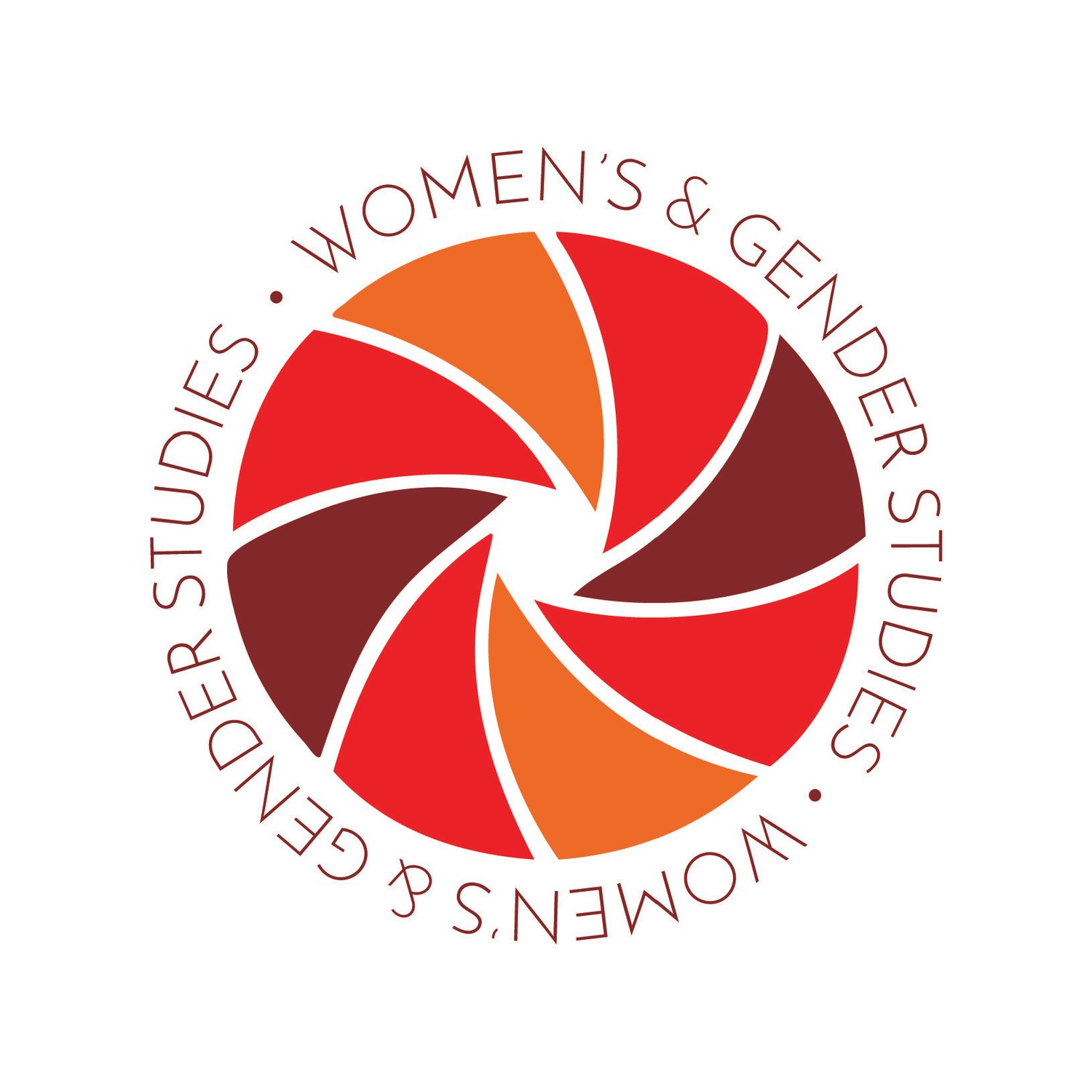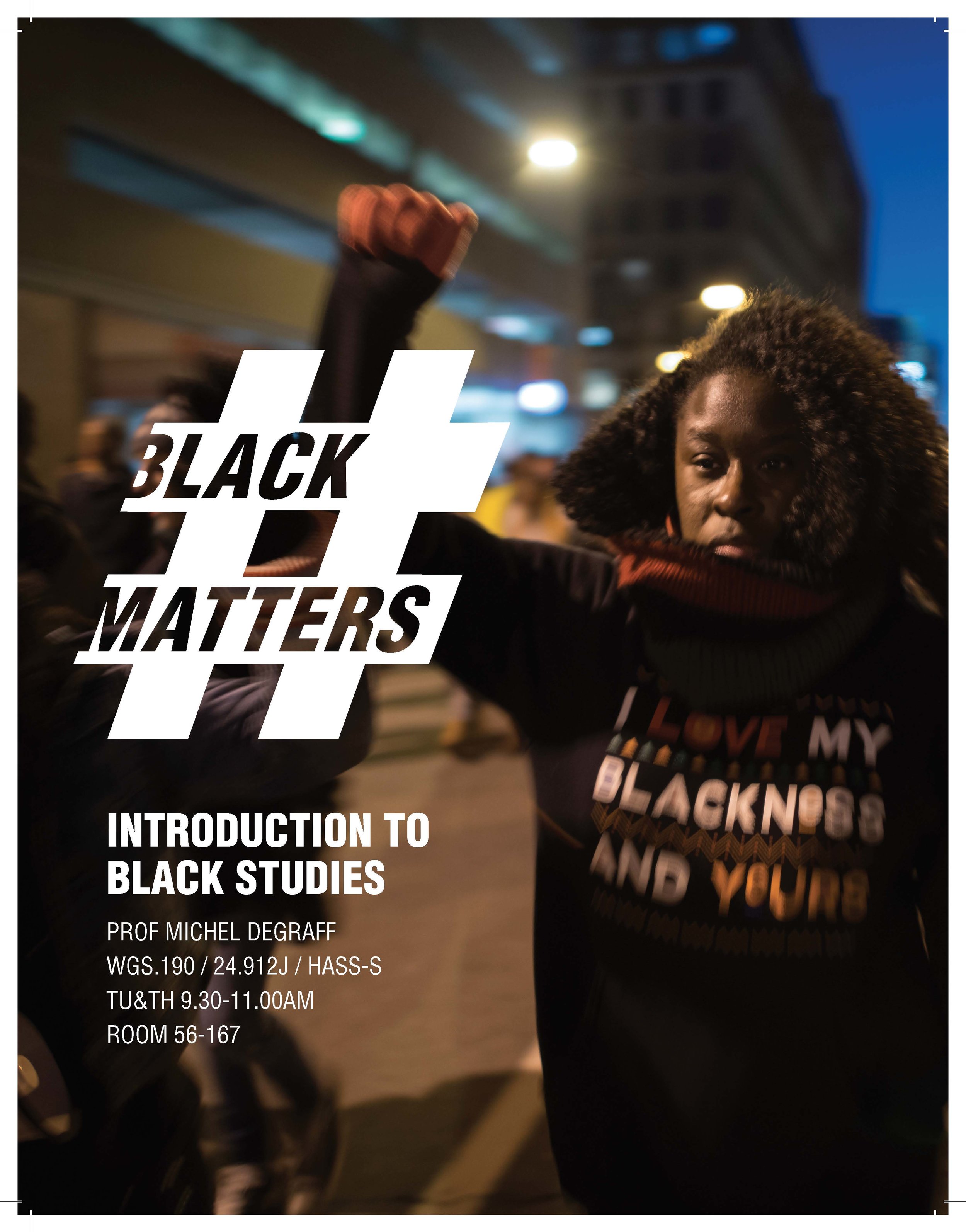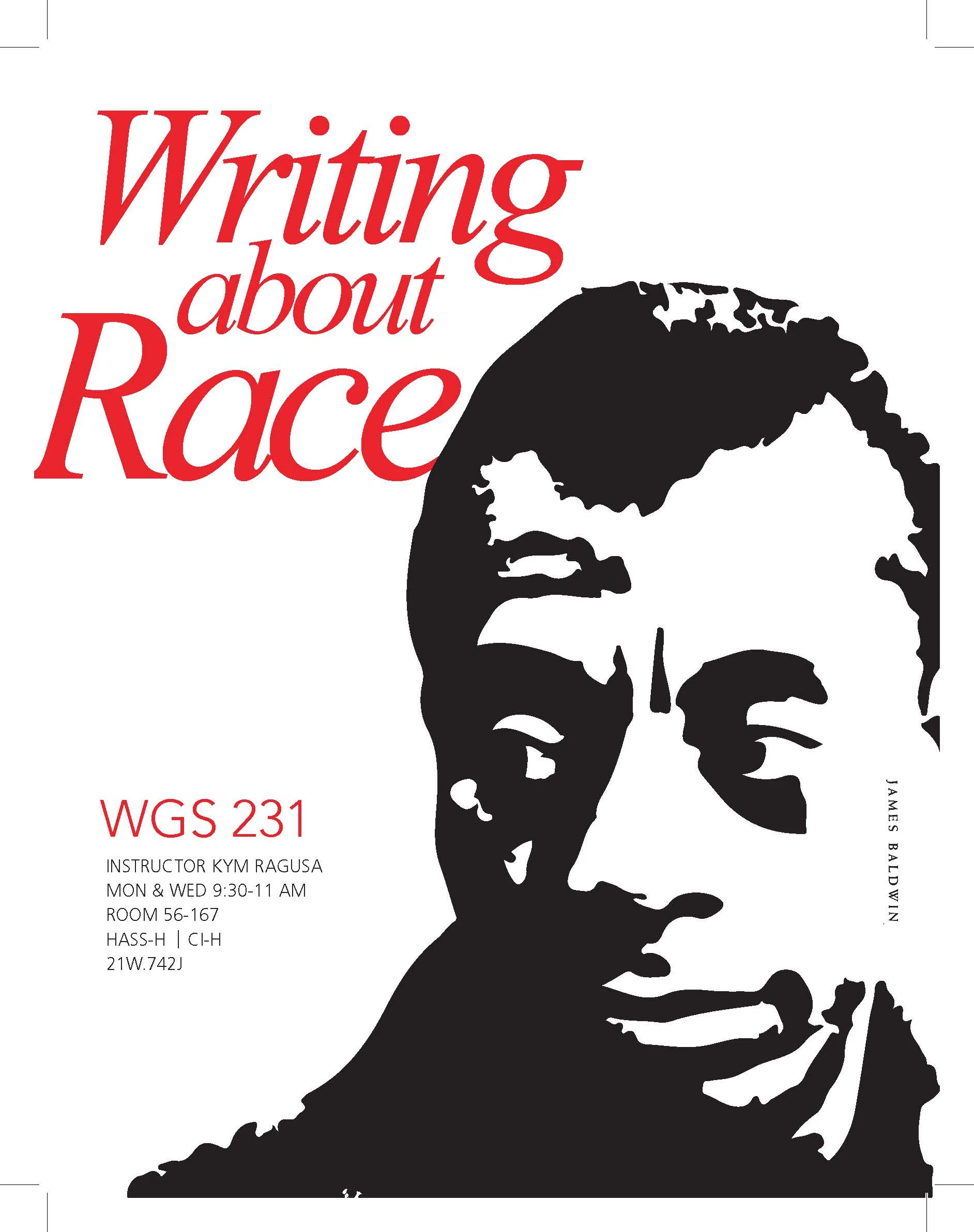WGS.236 Introduction to East Asian Cultures: From Zen to K-Pop
Examines traditional forms of East Asian culture (including literature, art, performance, food, and religion) as well as contemporary forms of popular culture (film, pop music, karaoke, and manga). Covers China, Japan, Korea, Taiwan, and Hong Kong, with an emphasis on China. Considers women's culture, as well as the influence and presence of Asian cultural expressions in the US. Uses resources in the Boston area, including the MFA, the Children's Museum, and the Sackler collection at Harvard. Taught in English.
HASS-H
TR 1-2:30
Room 14N-313
same subject as 21G.030
Examines traditional forms of East Asian culture (including literature, art, performance, food, and religion) as well as contemporary forms of popular culture (film, pop music, karaoke, and manga). Covers China, Japan, Korea, Taiwan, and Hong Kong, with an emphasis on China. Considers women's culture, as well as the influence and presence of Asian cultural expressions in the US. Uses resources in the Boston area, including the MFA, the Children's Museum, and the Sackler collection at Harvard. Taught in English.
E. Teng
WGS.240 Jane Austen
An examination of Jane Austen's satire in her seven complete novels, several fragments, and juvenilia. Students read these texts in relation to her letters and other biographical and historical information.
HASS-H
TR 11-12:30
Room 2-103
same subject as 21L.473
An examination of Jane Austen's satire in her seven complete novels, several fragments, and juvenilia. Students read these texts in relation to her letters and other biographical and historical information.
R. Perry
WGS.245 Identities and Intersections: Queer Literatures
Focuses on LGBT literature from the mid-19 century to the present, with an emphasis on fiction and poetry. In particular, analyzes how LGBT identities and their literary representations have changed over time. Covers authors such as Walt Whitman, Oscar Wilde, Virginia Woolf, James Baldwin, Audre Lorde, Cherrie Moraga, Melvin Dixon, Leslie Feinberg, and Luis Negron.
NEW course!
HASS-H
MW EVE 7-8:30PM
Room 4-146
same subject as 21L.480
Focuses on LGBT literature from the mid-19 century to the present, with an emphasis on fiction and poetry. In particular, analyzes how LGBT identities and their literary representations have changed over time. Covers authors such as Walt Whitman, Oscar Wilde, Virginia Woolf, James Baldwin, Audre Lorde, Cherrie Moraga, Melvin Dixon, Leslie Feinberg, and Luis Negron.
J. Terrones
WGS.301 Feminist Thought
Analyzes theories of gender and politics, especially ideologies of gender and their construction; definitions of public and private spheres; gender issues in citizenship, the development of the welfare state, experiences of war and revolution, class formation, and the politics of sexuality. Graduate students are expected to pursue the subject in greater depth through reading and individual research.
HASS-H
MW 1-2:30
Room 4-257
same subject as 17.007, 24.237
Analyzes theories of gender and politics, especially ideologies of gender and their construction; definitions of public and private spheres; gender issues in citizenship, the development of the welfare state, experiences of war and revolution, class formation, and the politics of sexuality. Graduate students are expected to pursue the subject in greater depth through reading and individual research.
E. Wood
WGS.321 French Feminist Literature: Yesterday and Today
Explores feminist literary voices in France throughout the ages. Discusses the theory that the power of feminist writing lies in its ability to translate dominant language into a language of one's own. Studies lifestyles, family norms, political representation, social movements, as well as the perception of the body. Investigates how feminist genealogies redefine the relationship between belonging and knowledge through a dialogue between several generations of women writers. Taught in French. Limited to 18.
HASS-H
T EVE 7-10PM
Room 14N-313
same subject as 21G.344
Explores feminist literary voices in France throughout the ages. Discusses the theory that the power of feminist writing lies in its ability to translate dominant language into a language of one's own. Studies lifestyles, family norms, political representation, social movements, as well as the perception of the body. Investigates how feminist genealogies redefine the relationship between belonging and knowledge through a dialogue between several generations of women writers. Taught in French. Limited to 18.
B Perreau
WGS.155 Global Sexualities
Connects the consequences of power, inequality, and belief systems on sexual health and personal well-being in the US and non-western countries. Focuses on how "subordinate" groups contend with dominant domestic and international pressures to conform to narratives and expectations predicated on inequalities. Conducted in seminar format with discussions on uncovering the dynamics and dimensions of inequality. Examines major historical cross-cultural events impacting attitudes on sexual behaviors and sexualities.
Prereq: None
3-0-9 units.
Lecture: W 7:00-10:00
Room: E53-354
Connects the consequences of power, inequality, and belief systems on sexual health and personal well-being in the US and non-western countries. Focuses on how "subordinate" groups contend with dominant domestic and international pressures to conform to narratives and expectations predicated on inequalities. Conducted in seminar format with discussions on uncovering the dynamics and dimensions of inequality. Examines major historical cross-cultural events impacting attitudes on sexual behaviors and sexualities.
L. Tso
WGS.S10 - Marginalized Masculinities
New Course!
Throughout U.S. history, the perception of masculinity and manhood has traditionally been rooted in White, elite, heterosexual masculinities. Discussions surrounding economically marginalized White men and men of color while limited are usually rooted in stereotypes, tropes, and limited narratives often constructed by the aforementioned dominate male. As such, this course will focus on what it means to be a marginalized boy/man. While the abundance of course examples will be rooted in a U.S. context, we will address global masculinities. Paying particular attention to the way class, race, sexuality, religion, citizenship, ability and other identities intersect to influence these realities, we will consider how these images have changed or remained static over time.
Prereq: None
U (Spring)
3-0-9 units
Can be repeated for credit.
Lecture: MW 11-12:30
Room: 14E-310
Throughout U.S. history, the perception of masculinity and manhood has traditionally been rooted in White, elite, heterosexual masculinities. Discussions surrounding economically marginalized White men and men of color while limited are usually rooted in stereotypes, tropes, and limited narratives often constructed by the aforementioned dominate male. As such, this course will focus on what it means to be a marginalized boy/man. While the abundance of course examples will be rooted in a U.S. context, we will address global masculinities. Paying particular attention to the way class, race, sexuality, religion, citizenship, ability and other identities intersect to influence these realities, we will consider how these images have changed or remained static over time.
K. Gray
21H.983 - Gender
Open to advanced undergraduates with permission of instructor.
Examines the definition of gender in scientific, societal, and historical contexts. Explores how gender influences state formation and the work of the state, what role gender plays in imperialism and in the welfare state, the ever-present relationship between gender and war, and different states' regulation of the body in gendered ways at different times. Investigates new directions in the study of gender as historians, anthropologists and others have taken on this fascinating set of problems.
Prereq: None
G (Spring)
3-0-9 units
Lecture: R 9:30-12:30
Examines the definition of gender in scientific, societal, and historical contexts. Explores how gender influences state formation and the work of the state, what role gender plays in imperialism and in the welfare state, the ever-present relationship between gender and war, and different states' regulation of the body in gendered ways at different times. Investigates new directions in the study of gender as historians, anthropologists and others have taken on this fascinating set of problems. Open to advanced undergraduates with permission of instructor.
L. Ekmekcioglu, E. Wood
WGS.101 - Introduction to Women's and Gender Studies
Drawing on multiple disciplines - such as literature, history, economics, psychology, philosophy, political science, anthropology, media studies and the arts - to examine cultural assumptions about sex, gender, and sexuality. Integrates analysis of current events through student presentations, aiming to increase awareness of contemporary and historical experiences of women, and of the ways sex and gender interact with race, class, nationality, and other social identities. Students are introduced to recent scholarship on gender and its implications for traditional disciplines.
Prereq: None
U (Fall, Spring)
3-0-9 units. HASS-H; CI-H
Lecture: MW 3:00p-4:30p
Room: 4-145
Drawing on multiple disciplines - such as literature, history, economics, psychology, philosophy, political science, anthropology, media studies and the arts - to examine cultural assumptions about sex, gender, and sexuality. Integrates analysis of current events through student presentations, aiming to increase awareness of contemporary and historical experiences of women, and of the ways sex and gender interact with race, class, nationality, and other social identities. Students are introduced to recent scholarship on gender and its implications for traditional disciplines.
A. Walsh
WGS.111 - Gender & Media Studies
Examines representations of race, gender, and sexual identity in the media. Considers issues of authorship, spectatorship, and the ways in which various media (film, television, print journalism, advertising) enable, facilitate, and challenge these social constructions in society. Studies the impact of new media and digital media through analysis of gendered and racialized language and embodiment online in blogs and vlogs, avatars, and in the construction of cyberidentities. Provides introduction to feminist approaches to media studies by drawing from work in feminist film theory, cultural studies, gender and politics, and cyberfeminism.
Same subject as CMS.619[J]
Prereq: None
U (Fall, Spring)
3-0-9 units. HASS-H
Lecture: W 7:00p-10:00p
Room: 66-168
Examines representations of race, gender, and sexual identity in the media. Considers issues of authorship, spectatorship, and the ways in which various media (film, television, print journalism, advertising) enable, facilitate, and challenge these social constructions in society. Studies the impact of new media and digital media through analysis of gendered and racialized language and embodiment online in blogs and vlogs, avatars, and in the construction of cyberidentities. Provides introduction to feminist approaches to media studies by drawing from work in feminist film theory, cultural studies, gender and politics, and cyberfeminism.
K. Surkan
WGS.151 - Gender, Health, & Society
Draws on different disciplines, conceptual frameworks, and methodological approaches to examine gender in relation to health, including public health practice, epidemiologic research, health policy, and clinical application. Discusses a variety of health-related issues that illustrate global, international, domestic, and historical perspectives. Considers other social determinants of health as well, including social class and race. Limited to 35.
Prereq: None
U (Spring)
3-0-9 units. HASS-S
Lecture: M 7:00-10:00
Room: 14E-310
Draws on different disciplines, conceptual frameworks, and methodological approaches to examine gender in relation to health, including public health practice, epidemiologic research, health policy, and clinical application. Discusses a variety of health-related issues that illustrate global, international, domestic, and historical perspectives. Considers other social determinants of health as well, including social class and race. Limited to 35.
B. Charlton
WGS.190 - Black Matters: Introduction to Black Studies
Interdisciplinary survey of people of African descent that draws on the overlapping approaches of history, literature, anthropology, legal studies, media studies, performance, linguistics, and creative writing. Connects the experiences of African-Americans and of other American minorities, focusing on social, political, and cultural histories, and on linguistic patterns. Includes lectures, discussions, workshops, and required field trips that involve minimal cost to students.
Prereq: None
12 Units. HASS-A, HASS-H; CI-H
Same subject as 24.912, 21H.106, 21L.008, 21W.741
Interdisciplinary survey of people of African descent that draws on the overlapping approaches of history, literature, anthropology, legal studies, media studies, performance, linguistics, and creative writing. Connects the experiences of African-Americans and of other American minorities, focusing on social, political, and cultural histories, and on linguistic patterns. Includes lectures, discussions, workshops, and required field trips that involve minimal cost to students.
M. Degraff
WGS.225 - The Science of Race, Sex, & Gender
Examines the role of science and medicine in the origins and evolution of the concepts of race, sex, and gender from the 17th century to the present. Focus on how biological, anthropological, and medical concepts intersect with social, cultural, and political ideas about racial, sexual, and gender difference in the US and globally. Approach is historical and comparative across disciplines emphasizing the different modes of explanation and use of evidence in each field.
Same subject as 21A.103, STS.046
Prereq: None
U (Spring)
3-0-9 units. HASS-S
Lecture: TR 9:30-11:00
Room: 4-146
Examines the role of science and medicine in the origins and evolution of the concepts of race, sex, and gender from the 17th century to the present. Focus on how biological, anthropological, and medical concepts intersect with social, cultural, and political ideas about racial, sexual, and gender difference in the US and globally. Approach is historical and comparative across disciplines emphasizing the different modes of explanation and use of evidence in each field.
A. Sur
WGS.229 - Race, Culture, & Gender in the U.S & Beyond: A Psychological Perspective
Examines the biopsychosocial factors which impact racial-ethnic identity, racial and cultural socialization, and experiences of prejudice, bias, discrimination, and racial microaggressions across gender identities. Reviews topics in multicultural psychology from the lens of challenging ethnocentric biases in the field. Critically evaluates the intersection of race with other social identities (e.g., gender, sexual identity, and socioeconomic status) and how it impacts human behavior. Using a case study approach, students integrate empirical evidence from international psychosocial research on oppression in order to provide more breadth in understanding the influence of race and gender upon human behavior. Develops multicultural competency skills essential for practice in clinical and non-clinical organizational settings. Limited to 25.
Prereq: None
U (Spring)
3-0-9 units. HASS-S
Lecture: R 7:00-10:00pm
Room: 14E-310
Examines the biopsychosocial factors which impact racial-ethnic identity, racial and cultural socialization, and experiences of prejudice, bias, discrimination, and racial microaggressions across gender identities. Reviews topics in multicultural psychology from the lens of challenging ethnocentric biases in the field. Critically evaluates the intersection of race with other social identities (e.g., gender, sexual identity, and socioeconomic status) and how it impacts human behavior. Using a case study approach, students integrate empirical evidence from international psychosocial research on oppression in order to provide more breadth in understanding the influence of race and gender upon human behavior. Develops multicultural competency skills essential for practice in clinical and non-clinical organizational settings. Limited to 25.
C. Kapungu
WGS.231 - Writing about Race
The issue of race and racial identity have preoccupied many writers throughout the history of the US. Students read Jessica Abel, Diana Abu-Jaber, Lynda Barry, Felicia Luna Lemus, James McBride, Sigrid Nunez, Ruth Ozeki, Danzy Senna, Gloria Anzaldua, Judith Ortiz Cofer, Carmit Delman, Stefanie Dunning, Cherrie Moraga, Hiram Perez and others, and consider the story of race in its peculiarly American dimensions. The reading, along with the writing of members of the class, is the focus of class discussions. Oral presentations on subjects of individual interest are also part of the class activities. Students explore race and ethnicity in personal essays, pieces of cultural criticism or analysis, or (with permission of instructor) fiction. All written work is read and responded to in class workshops and subsequently revised. Enrollment limited.
Prereq: None
12 Units. HASS-H; CI-H
Lecture: MW 9:30-11:00
Room: 56-167
The issue of race and racial identity have preoccupied many writers throughout the history of the US. Students read Jessica Abel, Diana Abu-Jaber, Lynda Barry, Felicia Luna Lemus, James McBride, Sigrid Nunez, Ruth Ozeki, Danzy Senna, Gloria Anzaldua, Judith Ortiz Cofer, Carmit Delman, Stefanie Dunning, Cherrie Moraga, Hiram Perez and others, and consider the story of race in its peculiarly American dimensions. The reading, along with the writing of members of the class, is the focus of class discussions. Oral presentations on subjects of individual interest are also part of the class activities. Students explore race and ethnicity in personal essays, pieces of cultural criticism or analysis, or (with permission of instructor) fiction. All written work is read and responded to in class workshops and subsequently revised. Enrollment limited.
K. Ragusa
















